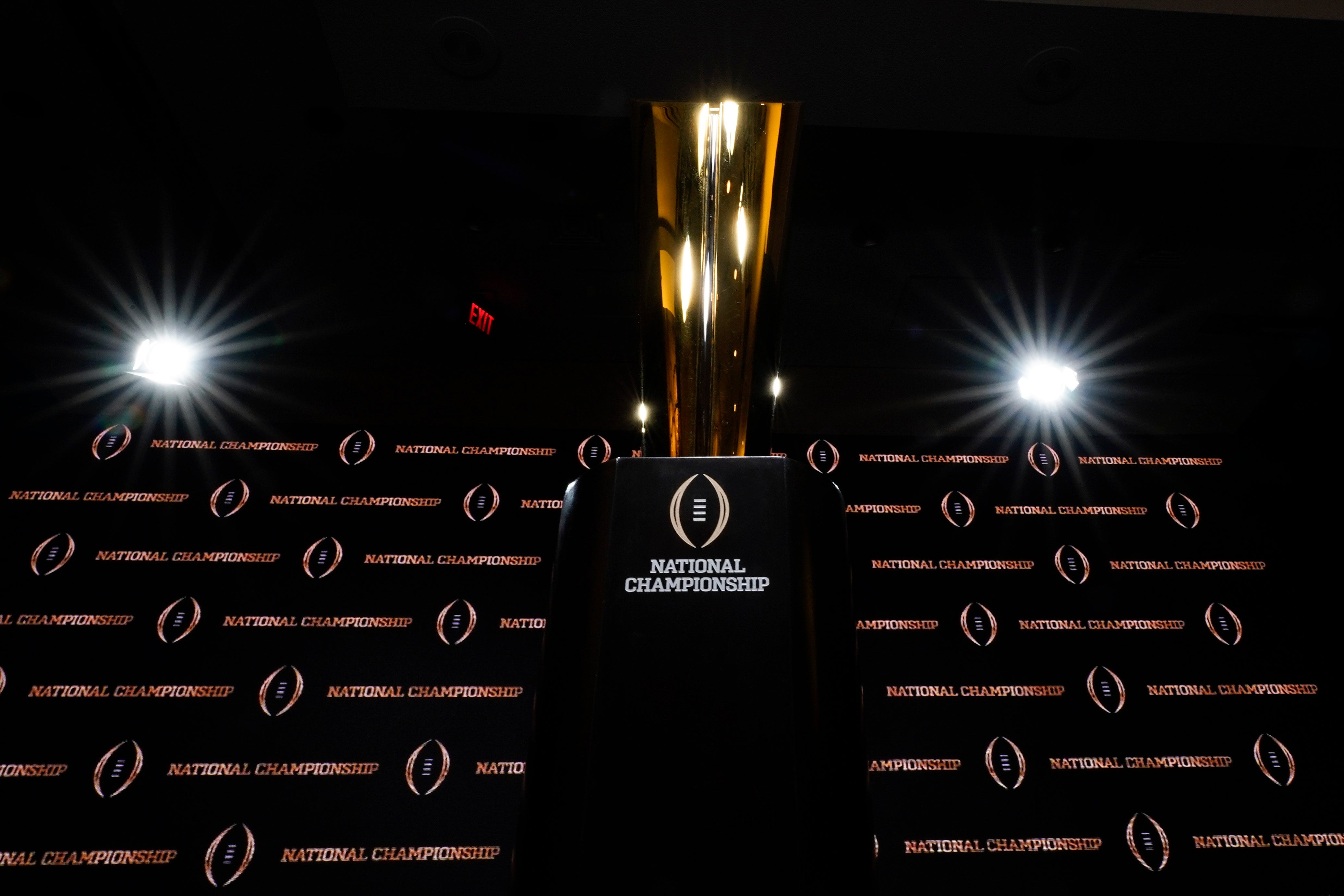On Football: Change seems likely amid frustration with CFP
The College Football Playoff is starting to produce the level of frustration among fans and competitors that ultimately crushed the Bowl Championship Series seven years ago

Seven years into its existence, the postseason system that replaced the Bowl Championship Series is starting to produce levels of frustration, and in some cases contempt among fans and competitors that ultimately crushed the BCS.
Texas A&M is upset about not making the final four.
Indiana is mad about being left out of the New Year's Six.
Group of Five teams are more disrespected than ever as it has become abundantly clear they are not even given serious consideration for the College Football Playoff.
And it's not just the CFP that was ticking folks off Sunday. The whole bowl system got exposed for being a sham that has nothing do with rewarding deserving teams when Army (9-2) was left without an opponent for the postseason while nine teams with losing records — including 2-8 South Carolina — got games.
“What I can tell you is the reason there are complaints, and I say it with a smile on my face, it’s because people care,” said Iowa athletic director Gary Barta, the chairman of the playoff selection committee. “They care a lot.”
True. The backbone of the sport, it's economic engine, is the passion fans have for it. But if too many customers — and participants — are upset it's no longer a laughing matter.
To be sure, some of this is just typical whining that will never go away. The concept of people reasonably disagreeing about a subjective process has gone out the window. Sure, Texas A&M had a case to be No. 4. But only those analyzing it through maroon-colored glasses would claim the Aggies were robbed.
Still, the mighty Southeastern Conference not getting the benefit of the doubt for once could be a good thing. The only conference before this year to place two teams in one final four has become the staunchest public supporter of the status quo.
A little disappointment might motivate the SEC to push for change. It certainly had that effect in the Big Ten after a couple of seasons in which its champion was shut out.
The Atlantic Coast Conference put two teams in this season's Jan. 1 semifinals, with No. 1 Alabama facing Notre Dame in Arlington, Texas, and Clemson-Ohio State in New Orleans.
Fighting Irish football is only crashing on the ACC's couch during this season turned upside down by a pandemic, but the the conference will cash two $6 million checks just the same for having two semifinalists.
While the final call for the committee came down to Notre Dame or Texas A&M, it was Ohio State's inclusion after a six-game season that seemed to be drawing most of the fans' ire and some not so subtle second-guessing from coaches.
“I think the games matter,” Clemson's Dabo Swinney said. “The mental and physical toll of a season — there’s nobody out there that would say that somebody who’s played 11 games versus somebody who’s played six is better physically or something like that because it’s a long season.”
The committee was all in on the Buckeyes and their limited schedule, but not so keen on Indiana (6-1) with seven games played.
The Hoosiers' best season in decades only earned them an Outback Bowl bid against a Mississippi team with a losing record. In the final AP rankings of the regular season, Indiana was No. 7. The CFP stuck the Hoosiers at 11, behind Iowa State (8-3), Georgia (8-2) and Florida (8-3).
Indiana coach Tom Allen took the high road.
“There will be a time and a place to address that,” Allen said. “I don’t think this is the time or the place. We’re excited to be going to Tampa.”
Indiana seemed to suffer at least a little from the type of name-brand bias that so many outside the Power Five conferences complain about.
It could not be clearer that teams from the so-called Group of Five conferences are never going to get more than the bare minimum the CFP offers.
One spot in the six big-ticket bowl games is reserved for the highest-ranked Group of Five conference champion. That's all those leagues have ever gotten. No teams in the semifinals. No teams receiving an at-large bid to one of the glitzy games played around New Year's Day.
If not this strange season, then when?
If the debate for the fourth spot is the team that Alabama beat by 28 (Texas A&M) or the team Clemson beat by 24 (Notre Dame), then why not give unbeaten Cincinnati a crack? Instead, the Bearcats were ranked eighth behind Oklahoma (8-2) and Florida.
Louisiana-Lafayette, the team that beat Iowa State by 17 points, was 19th in the committee's rankings. Coastal Carolina, the only team to beat Louisiana-Lafayette, was 12th.
While ESPN's Kirk Herbstreit suggested the Group of Five conferences should “take the high road” instead of making a loud fuss, change rarely comes from politely asking.
The College Football Playoff will expand. It probably won't happen until after the current 12-year television contract with ESPN runs out after the 2025 season.
The debates about what the change might look like are already starting to happen, just not formally. How many teams? How will they be chosen? Or, better, how will they qualify? Where will the games be played?
All of that must be decided, and the more people there are in college football who are dissatisfied with the current postseason, the better the chances the broken parts get fixed.
___
Follow Ralph D. Russo at https://twitter.com/ralphDrussoAP and listen at https://westwoodonepodcasts.com/pods/ap-top-25-college-football-podcast/
___
More AP college football: https://apnews.com/Collegefootball and https://twitter.com/AP_Top25
Bookmark popover
Removed from bookmarks